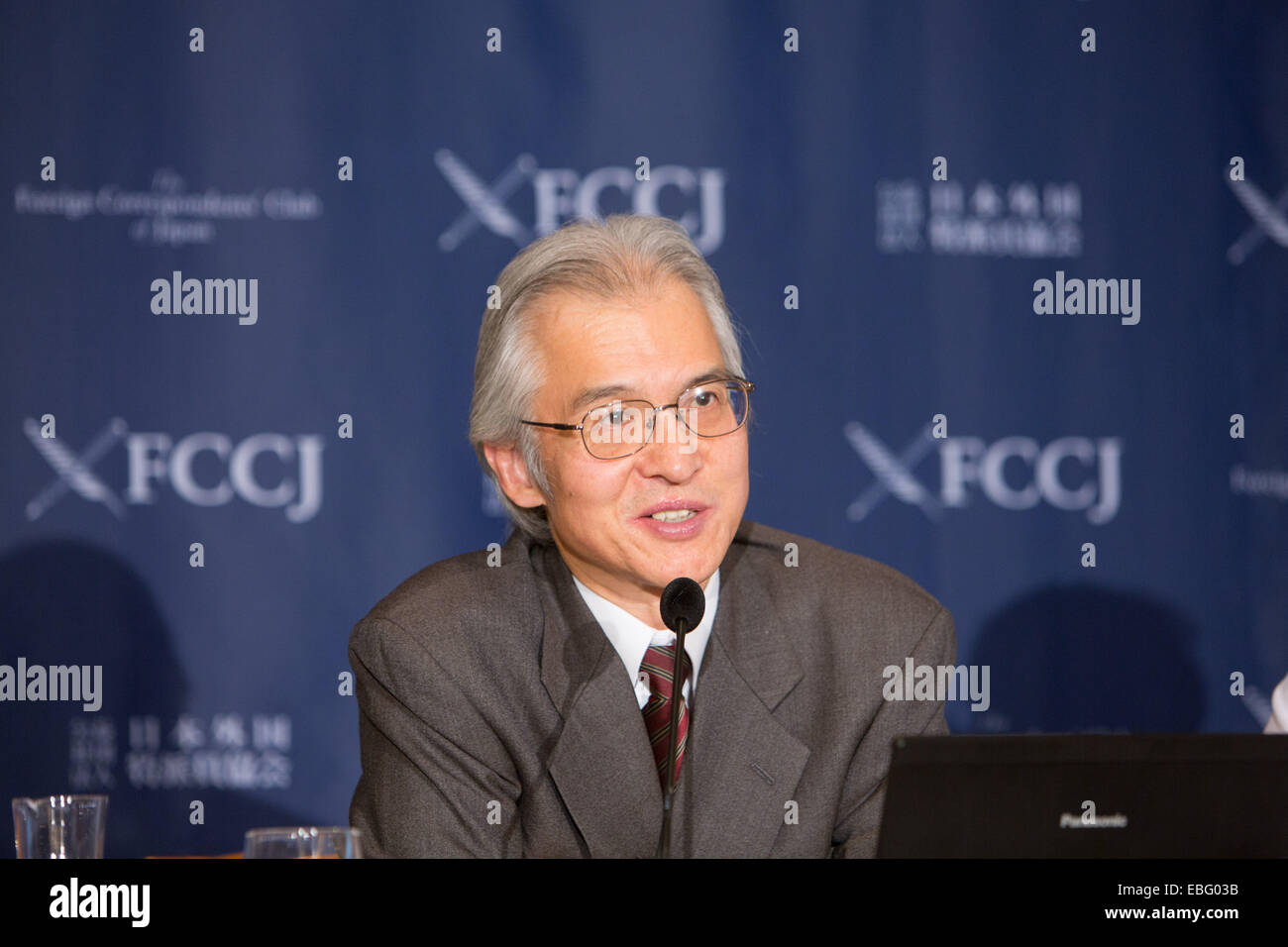Joji Morishita, Japan's Commissioner to the International Whaling Commission (IWC) In late March, the International Court of Justice ordered Japan to halt its Antarctic research whaling program. The court ruled that there was little evidence that taking over 900 whales annually produced scientific results of any value. Therefore, the program violated the terms of the 1946 International Convention for the Regulation of Whaling, the court decided. Japan complied with the order to halt the program. But the court left open a loophole. It suggested that Japan could revise the program to reflect th

Image details
Contributor:
Aflo Co. Ltd. / Alamy Stock PhotoImage ID:
EBG03BFile size:
30.5 MB (1.1 MB Compressed download)Releases:
Model - no | Property - noDo I need a release?Dimensions:
4000 x 2667 px | 33.9 x 22.6 cm | 13.3 x 8.9 inches | 300dpiDate taken:
28 November 2014Photographer:
Nippon NewsMore information:
This image could have imperfections as it’s either historical or reportage.
Joji Morishita, Japan's Commissioner to the International Whaling Commission (IWC) In late March, the International Court of Justice ordered Japan to halt its Antarctic research whaling program. The court ruled that there was little evidence that taking over 900 whales annually produced scientific results of any value. Therefore, the program violated the terms of the 1946 International Convention for the Regulation of Whaling, the court decided. Japan complied with the order to halt the program. But the court left open a loophole. It suggested that Japan could revise the program to reflect the court's findings and resume research whaling. And that is exactly what Japan is doing. On 18th November, it submitted a new research whaling plan to the International Whaling Commission. The new plan calls for increasing the use of non-lethal methods of gathering data. But it also targets taking 333 minke whales each year. The plan claims that sacrificing the animals is the only way to accurately determine their age which is needed to determine the age structure of the minke whale population. This is critical data for managing minke whale stocks, the plan claims.Joji Morishita, Japan's commissioner to the International Whaling Commission, speaks to the press in Tokyo, Japan on November 28th 2014. Morishita is working to persuade other members of the IWC that Japan's whaling programme is for scientific purposes. He explained differences between commercial and research whaling, including reasons why animals have to be scarified to determine several parameters of their bodies. Joji Morishita, Japan's commissioner to the International Whaling Commission, speaks to the press in Tokyo, Japan on November 28th 2014. Morishita is working to persuade other members of the IWC that Japan's whaling programme is for scientific purposes. He explained differences between commercial and research whaling, including reasons why animals have to be scarified to determine several parameters of t